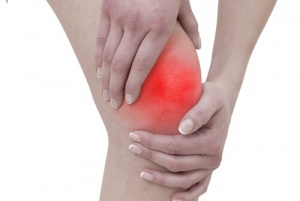Foods That Reduce Joint Swelling

Osteoarthritis is a disease that deeply affects the joints, gradually causing the loss of joint swelling and the loss of cartilage. Nutrition is quite a powerful tool in preventing or treating this condition, either as a complement or aid to conventional medical treatments.
Anti-Inflammatory Foods
Osteoarthritis is an inflammatory disease which causes rigidity and severe pain in the joints, especially in the hands, hips, knees, back, and neck.
See Also: 5 Tips and Exercises for Strong Knees
A good diet that includes specific foods consumed daily can be one of the best measures you can take for this ailment.
To be able to bear those inflammatory processes when they have already appeared, there are certain foods that help reduce joint swelling and improve these painful symptoms. They are as follows:
Broccoli
Researchers at University of East Anglia have determined that this plant contains a substance called sulforaphane. This substance is a bioactive compound that has the ability to destroy enzymes that affect the joints. That’s why eating it might help combat the effects of osteoarthritis.
Cherries may help with joint swelling
Through various studies conducted at the Baylor Institute, experts have examined the effects that cherry pills have on some patients with osteoarthritis. Some studies found good results. More than half of the patients in one study experienced satisfying results with regard to pain reduction after taking these pills for 8 weeks. They also helped with recovery of mobility.
Salmon, tuna, and herring
Omega-3 fatty acids are abundant in fish such as salmon, tuna, and herring. These fish are important for naturally treating joint swelling due to their powerful anti-inflammatory effect. Recent studies have shown that they have the capacity to reduce pain and improve joint function in patients suffering from osteoarthritis.
Also Read: Tuna Croquettes With Cheese Recipe
Basil and olive oil
Olive oil and basil are natural products that can be of great help in fighting inflammation. You can easily prepare this natural remedy soaking sprigs of basil in olive oil. With this, you can create an effective combination for massaging the affected areas. This mixture can even be warmed a little before use. Massage the affected area at least twice a day.
This ancient natural remedy is used externally to treat inflammations caused by different ailments. Osteoarthritis is one of those.
Don’t forget that the best way to control these diseases is to do everything possible to prevent them. That’s why experts recommend you eat a healthy, balanced diet, rich in fruits and vegetables. Daily exercise is also important. Walking for half an hour every day is enough to help you maintain good health.
All cited sources were thoroughly reviewed by our team to ensure their quality, reliability, currency, and validity. The bibliography of this article was considered reliable and of academic or scientific accuracy.
Al-Okbi, S. Y. (2014). Nutraceuticals of anti-inflammatory activity as complementary therapy for rheumatoid arthritis. Toxicology and Industrial Health. https://doi.org/10.1177/0748233712462468
Kong, J. S., Yoo, S. A., Kim, H. S., Kim, H. A., Yea, K., Ryu, S. H., … Kim, W. U. (2010). Inhibition of synovial hyperplasia, rheumatoid T cell activation, and experimental arthritis in mice by sulforaphane, a naturally occurring isothiocyanate. Arthritis and Rheumatism. https://doi.org/10.1002/art.25017
Zhang, Y., Neogi, T., Chen, C., Chaisson, C., Hunter, D. J., & Choi, H. K. (2012). Cherry consumption and decreased risk of recurrent gout attacks. Arthritis and Rheumatism. https://doi.org/10.1002/art.34677
Mueller, M., Hobiger, S., & Jungbauer, A. (2010). Anti-inflammatory activity of extracts from fruits, herbs and spices. Food Chemistry. https://doi.org/10.1016/j.foodchem.2010.03.041
Berbert, A. A., Kondo, C. R. M., Almendra, C. L., Matsuo, T., & Dichi, I. (2005). Supplementation of fish oil and olive oil in patients with rheumatoid arthritis. Nutrition. https://doi.org/10.1016/j.nut.2004.03.023
Covington, M. B. (2004). Omega-3 fatty acids. American Family Physician. https://doi.org/10.1016/B978-0-9531949-3-3.50014-6
This text is provided for informational purposes only and does not replace consultation with a professional. If in doubt, consult your specialist.








